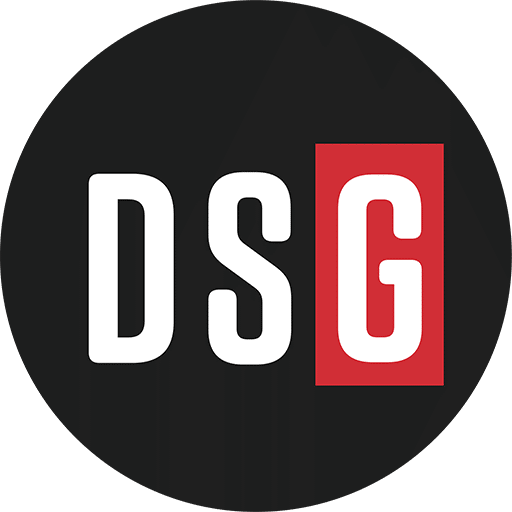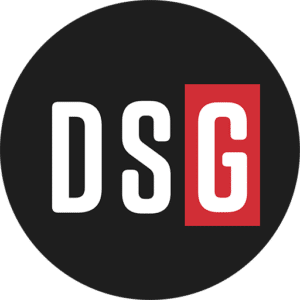As the head of a distributor of building materials and an ESOP, CEO Robyn Pollina’s job is to meet and manage the expectations of Palmer-Donavin’s many employee-owners while adapting the company to succeed in an evolving channel.
Palmer-Donavin became 100% employee owned and created its ESOP (Employee Stock Ownership Plan) company in March of 2007, the same year it celebrated its 100th year in business.
In this discussion, Ian Heller and Jonathan Bein, Ph.D., talked to Pollina about her views on building a strong culture and its impact on company success.
Ian Heller: Please give us a little background on your career path into distribution.
Robyn Pollina: I always say I didn’t come to distribution. I came to Palmer-Donavin. They were good people and had a good work-life balance.
It may not be a traditional pathway to CEO, but I started in 1995 as the assistant controller. I often joke that the current CFO hired me because I didn’t create too much pain when I was there as an auditor doing the physical inventory. I was motivated to get the work done quickly and efficiently. About two years later, I was promoted to CFO when my former boss moved on to something different. I served as CFO, over 23 years.
I’d say the highlight of my career was during the ESOP transaction in 2007. Sure, being appointed CEO in 2020 was wonderful, but becoming an employee-owned company was my favorite thing.
Jonathan Bein: What was it about becoming employee-owned that you loved so much?
Pollina: The opportunity to stay independent. As the CFO, I saw some of the alternative options that our owners had at the time. We were primarily owned by four families. That happened in the sixties when the company was almost going out of business and had a negative net worth position. Those owners rescued the company, and we were able to grow from there. It allowed us to stay independent and really give the employees something— something we didn’t even fully understand back then.
Bein: What did you notice from the employees during this transition, both on the positive and negative sides of the ledger?
Pollina: I think it was a little confusing for people. ESOP is a rather complex benefit. In some companies, it is just a retirement plan or a way to facilitate shares into individual employee owners’ accounts over time. There’s no immediate benefit when it happens, it takes time.
We had a pretty generous profit-sharing plan before, so we tried to explain how this is going to be better than that. It takes time to show people the value, and it has to become embedded into your culture and how you operate daily.
We have been very fortunate in the vertical we’re in with building materials. We’ve had a couple of spectacular years where people were stuck at home and wanted more in their home or wanted a remodeled home. That played well into our space. So, we’ve had a few very big celebrations regarding stock price.
Bein: Palmer-Donavin is not a traditional distributor. How is it structured and what do you do?
Pollina: We are in the building material vertical. A big chunk of our business is distributing other people’s products. We sell siding, roofing, kitchen cabinets, hardwood and vinyl flooring, engineered wood products and panel products.
Our largest category is composite decking and railing, but we also fabricate steel and fiberglass entry doors primarily for residential exterior doors. Every door we make is unique. It’s not like a typical manufacturing facility. I like to call it fabrication because of that uniqueness. The cool thing about our product and service is we can put the door together for the customer and we can pre-finish, stain it or paint it a special color just for the customer. It becomes a Palmer-Donavin door.
What makes us different is our service and how we deliver products. For example, we offer design services around door configuration or kitchen design, and we have a team of engineered wood product designers now. Our strong marketing team has created a functional website with a visualizer tool focused on our customers’ needs and the products we sell. Plus, we have an excellent marketing portal with customer resources.
We look at data as a service. We have a whole business analytics team that supports our initiatives with data-driven decisions and reaches out to customers and suppliers with actionable and easy-to-consume data.
We sell a lot to independent lumber yards and dealers. We have some big national players, and our recent acquisition has increased our value with folks like 84 Lumber and Carter Lumber. We do some business with big box retailers like Lowe’s or Home Depot.
Heller: Can you give us an overview of your culture and what makes it special?
Pollina: We did a project a little over a year ago to define our culture. Palmer-Donavin has a mission statement. We are all about delivering products, expertise and solutions that help our customers succeed. That is our driving force. We have five core values or ideals that we try to live by. But I went to a conference and saw a presentation by a consultation company called CultureWise. I saw what we were missing. We needed to define the actual behaviors and actions that people must practice daily to live out these core values.
We drew up 28 principles. They aren’t something you have to memorize and be tested on. They are something to practice, something you try to aspire to. We go over one every other week. Every manager or supervisor at Palmer-Donavin has an opportunity to lead that effort. We discuss it in our regular Traction[1] meetings, stand up meetings, whatever the manager supervisor already has in place. If we see someone living it out, we celebrate that.
Bein: Do you think the number of principles or core values will shrink over time?
Pollina: I don’t think they’ll change that much. We actually added a core value of continuous learning after a failed ERP implementation in 2016. That was so painful for a subset of employee-owners that we knew we needed to make something good come out of that event. So, we try to map out principles that help support each of the core values.
This week’s principle is “be better every day”, and it supports our core value of an unmatched work ethic. For instance, we had an employee do a podcast with our Vice President of Human Resources, Shawn Richard, where we highlighted our new Greenville, South Carolina location. They discussed how that manager practices something called “PKs.”
PKs are little five-minute product knowledge gatherings with the warehouse personnel about the products they handle every day. They discuss things like: Where does this product go in the house? How does it work? How is it packaged? What do you need to know about it to be better every day?
Last week we listened to the podcast. This week we will discuss it.
Bein: I’d love to come work for you. From hiring to promoting, maybe firing, how do you use this?
Pollina: We are still on that journey and talking about it. These are visible on our website, and I know recruiters have it in the back of their mind. The core values and principles are integrated into our training and development, especially for new leaders. Ultimately, this will be embedded into performance reviews. It is already part of employee rewards. We nominate an employee-owner of the year and disclose it at our annual meeting.
Bein: Could I be fired for violating one of the principles?
Pollina: You would have opportunities to grow and develop and do better practicing in the future. Ultimately, sometimes we must make decisions like that, but one of our strategic initiatives is a growth culture. A growth culture is about personal development and growing and developing your people to wherever they want to lead their life. Sometimes, that’s not going to be inside Palmer-Donavin’s four walls. Occasionally, we will part ways amicably and support you on your next journey.
Heller: What was the process for getting culture throughout the organization? Did it help get buy-in?
Pollina: When we drafted the 28 principles, it was a leadership team effort. We initially got some buy-in when our ESOP communications committee reviewed our list to ensure nothing was amiss. After that, we did three-hour rollout meetings for every single employee. That is a long time to sit in a chair and talk about culture. But it was very interactive.
The first few we had the consultation company, CultureWise, lead and then we trained a couple of our people to do it. We hold round table discussions where we talk about challenges or where you feel you nail it. Several people have come up to me and said, “I love this stuff. This was one of my most enjoyable days I’ve had at Palmer-Donavin.”
Heller: How does the culture hold up when profit sharing goes down or there are program or people cuts? I imagine this fabric of culture you created helps to support Palmer-Donavin in those negative times. What’s been your experience?
Pollina: Those are more complex conversations to have when going through a hard time. We talk a lot about what ownership is and what it isn’t. The market has ups and downs, and we have to make long-term investments in the ESOP. We are not a quarter-to-quarter company. The ERP failure I discussed earlier ended up costing revenue. It was one of the most expensive things we’d ever done. It took a couple of years to come back, and we had a suppression of our value.
Interestingly, when we launched our new strategic plan soon after I became CEO, we heard loud and clear from the people who lived through that pain. They were ready to do it again. They wanted a new ERP system that could integrate both sides of our company and create a straight line with distribution and fabrication. That spoke to me. I thought they were crazy.
But then I realized it was an opportunity to do it right this time and really live that core value of continuous learning. Be better every day. Even though it surprised me, we’ve embraced it, and we’ll make the investment. Frankly, the year you go live with an ERP may not be your most profitable year. We have to deliver that message to our shareholders. This is a long-term investment, and we have to stay the course, but we see a bright future.
[1] “Traction” meetings are part of the “EOS” management system.


